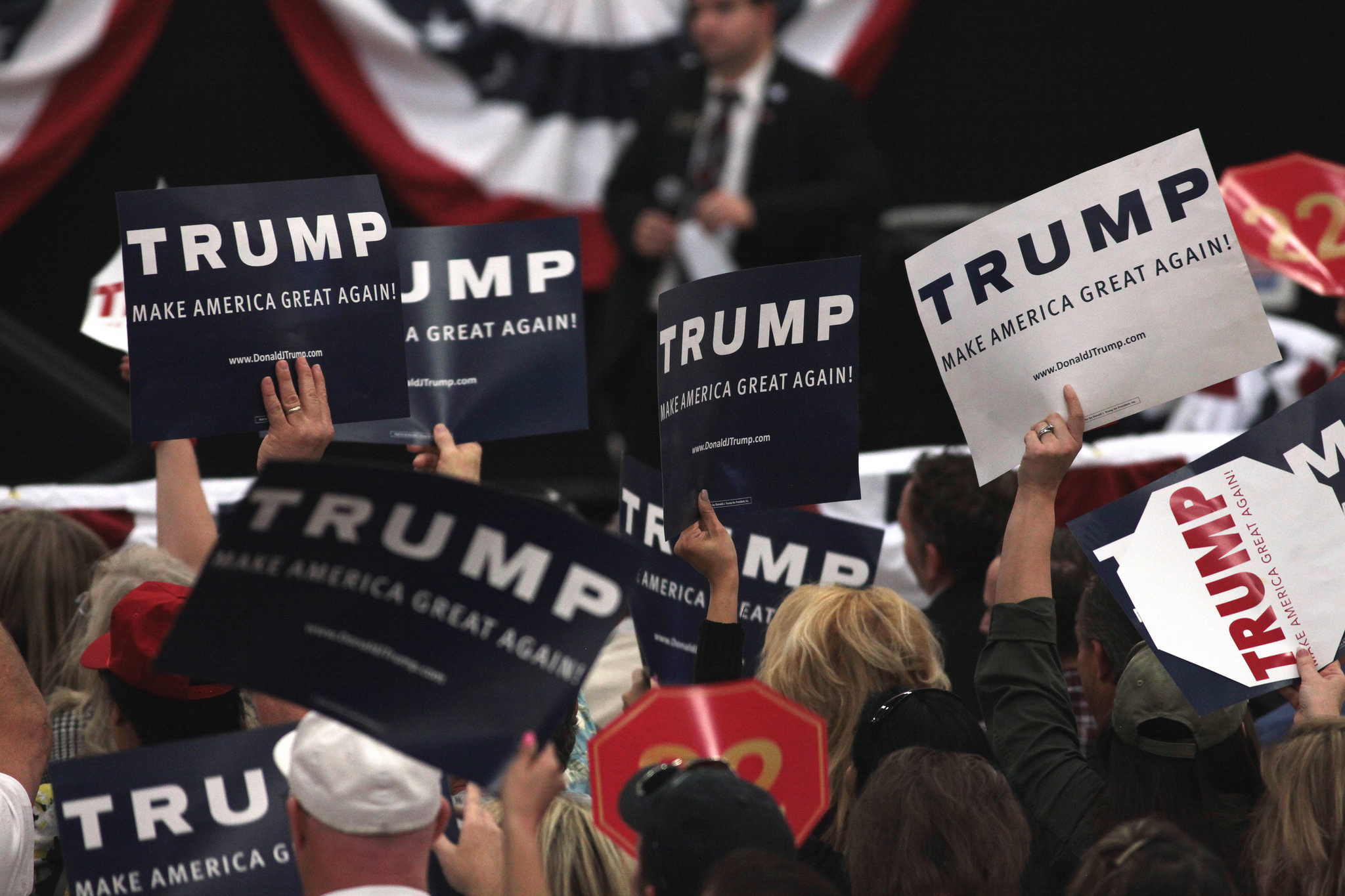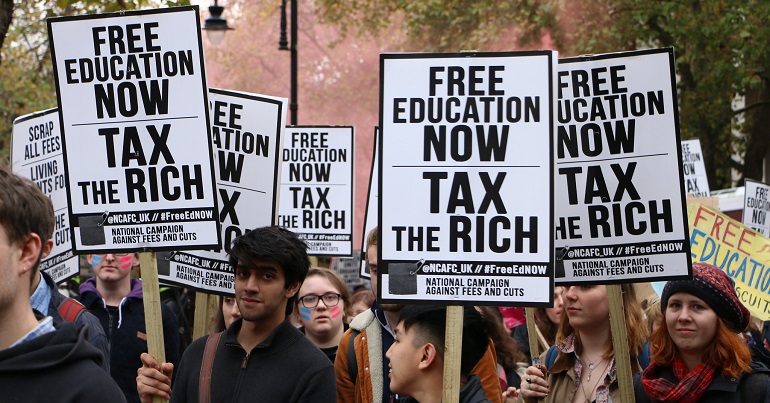Are we witnessing populism, or extremism?

Photo credit: flickr user Gage Skidmore https://www.flickr.com/photos/gageskidmore/25218962886/ Creative Commons license: https://creativecommons.org/licenses/by-sa/2.0/
Populism. You can’t get away from the term in the current climate of political commentary. At least in Europe this is true, but also in other parts of the world. It has certainly been applied to the Donald phenomenon by countless authors. I use it my own conversations too, and everyone seems to generally agree what we are referring to when using that label, so what is the problem?
Over the past few weeks, I have increasingly been struggling with the unproblematised usage of ‘populism/populist’ and the meaning to which it is assigned in contemporary media coverage and political discourse. Most people that have any remote exposure to such debates will probably feel they have a pretty comfortable grasp of which political trends, movements and parties are being described by this term at the moment. As I already mentioned, the successful Presidential campaign of Trump with his fervent support base, is one such example. But in Europe, the list is endless. To name a few supposed cases of contemporary populism (all according to common media citation), there is of course the Leave campaign of the EU referendum in the UK; Geert Wilders’ Freedom Party, which polled second in the recent Dutch elections; Marine Le Pen’s Front National who secured an incredibly strong showing in the first round of the French elections (although Le Pen has subsequently stepped down as leader of the party); Beppe Grillo’s Five Star movement in Italy; the Alternative For Germany party; the Freedom Party of Austria; and the list goes on and on. Almost every European country has a party currently described as populist.
Out of this bunch, the Leave campaign is obviously a bit of an outlier, as the rest are all political parties, but take a moment to think about the commonalities amongst these groups. The obvious theme is that they are all right to far-right on the (conventional) political spectrum, pushing a brand of ardent nationalism. Although the Leave campaign is not a party, if you consider its three most strident patrons – Farage, Johnson and Gove – as well as the neo-colonial language they propelled throughout the campaign, they also fit this mould comfortably. I am not by any means categorising the mixture of Leave voters as such, but certainly the elites of that campaign.
Additionally, they all adopt an anti-establishment stance. There is an absurdity to this notion in itself, given that, for example, Farage is a former City of London commodities broker, Le Pen was until recently the leader of a party her father founded, and coincidentally, Trump also inherited a decent job from his father, along with a supposed $40 million in 1974. Watch out, establishment. Nevertheless, this is the self-styled image the ‘populists’ have curated, and to some extent, it has been very effective. Disenfranchised voters have in no small part turned to these revolutionary insurgents in the hope of knocking the real elites and ‘experts’ down a peg or two.
A final key feature linking the populists is a strong Eurosceptic stance. This ranges from softer resistance to European integration by the likes of Alternative for Germany, to calls for referendums on EU membership from Marine Le Pen and Geert Wilders. This means we can all joyfully expect to hear the terms Frexit and Nexit bounded around for some time yet. Of course, the Leave campaign in the UK represents the pinnacle of the current Eurosceptic tide.
There are obviously other aspects to these parties, but assuming these are the main characteristics, what is it about them that attains the label of ‘populist’? To consider this, one also has to think about the definition of the term itself. In terms of current so-called populists, such as those discussed here, it would seem easy to equate the term with anti-establishment politics. But this becomes problematic when considering that there exists no singular, homogenous and static ‘establishment’. More accurately, establishments are multiple (political, media and business spring to mind) and dynamic. As such, it is not inherent that any given strain of anti-establishment sentiment would materialise as populist. Rather, upon surveying various ‘dictionary’ definitions of populism, the trait that is referenced to time and time again is the notion of appealing to the ‘ordinary’ people in a society. This initially seems a more feasible broad-based definition; if we assume that something appealing to ordinary people is likely to be popular, it seems a reasonable extension that it could be described as populist. However, in transferring this definition onto the current political landscape, this is where the difficulties with use of the term begin.
Primarily, who are these ‘ordinary’ people? According to contemporary political commentary, they are all those voting for far-right parties. But surely, ordinary must hold some relation to the average, or majority of people in any given society. Let’s imagine, then, that the ordinary is denoted by the majority. If this is the case, then many of the groups are immediately disqualified from the status of ‘populist’. Donald Trump does not represent populism, because he lost the popular vote to Hilary Clinton. Geert Wilders’ Freedom Party are not populist either, because they came second by some margin to the incumbent Dutch Prime Minister Mark Rutte’s party. In addition, Marine Le Pen seems likely to lose the French election to Emmanuel Macron, and Alternative for Deutschland have a massive zero seats in the Bundestag. You could go on. If ordinary is represented by the majority, then the only group that can maintain the label of populist is the Leave campaign, as they did indeed win the EU referendum. Even that was by a small margin.
Clearly in an electoral sense, there is proof that populism does not equate to the majority of people in a society. But perhaps populism is not something that can be numerically measured. Maybe, it more to do with reflecting predominant public opinions of the time. Reconsidering the main traits of supposedly populist groups outlined above, is there evidence to suggest that right wing, anti-establishment and Eurosceptic views are the ordinary at this moment in time? This explanation certainly has more legs than that of electoral success. Right wing politics can widely be seen as triumphing over that of the left throughout vast areas of the globe in the past few years at least. Also, it would be hard for anyone to deny the flourishing of anti-establishment sentiment and Euroscepticism in the recent political climate of Europe. Furthermore, Donald Trump provides evidence of the spread of this trend to America, not least in his invitation of Nigel Farage to speak at one of his rallies in the Presidential campaign.
However, the fact that these are three predominant public opinions of the times does still not explain the selection of groups that get labelled as populist. The Conservative Party in the UK have been edging increasingly further right over recent years, and their levels of anti-EU sentiment are at an all-time high. Yet, people are not classifying the Conservative party as populist; even as by far the largest party in the House of Commons, and with a sturdy chokehold on the entire direction of British politics.
As such, there seems to exist no clear logic as to why the label of populism has been settled on for the current group of political actors which is has. Maybe it is simply an issue of semantics, which doesn’t have any real significance or impact. But I suspect this is not the case. The language we use plays a huge role in how we interpret meanings as individuals and as societies. Far-right parties have been present in our societies throughout history, yet not always have we shrouded them under the veil of populism. By describing the current manifestations of far-right politics as populist, we dangerously normalise these actors as ordinary, or indeed, representing the majority’s views. This is clearly not the case. The notion of ‘ordinary’ these actors in fact seek to promote, is all too often that of a single, uniform ethno-national group. The media, and all the rest of us, ought to agree upon a more representative name for this type of politics. Perhaps extremist, isolationist, or simply ‘far-right’. This is a matter up for discussion. But we should decide quickly, and prevent these groups for becoming truly ‘populist’. For when this divisive and hateful politics becomes the ordinary, or majority, this would indeed pose a real danger to our societies.




Extremism that is being dressed as ‘populism’ via manipulation of the media by the hardline nationalists and racists; however, Europe is getting better at resisting it.